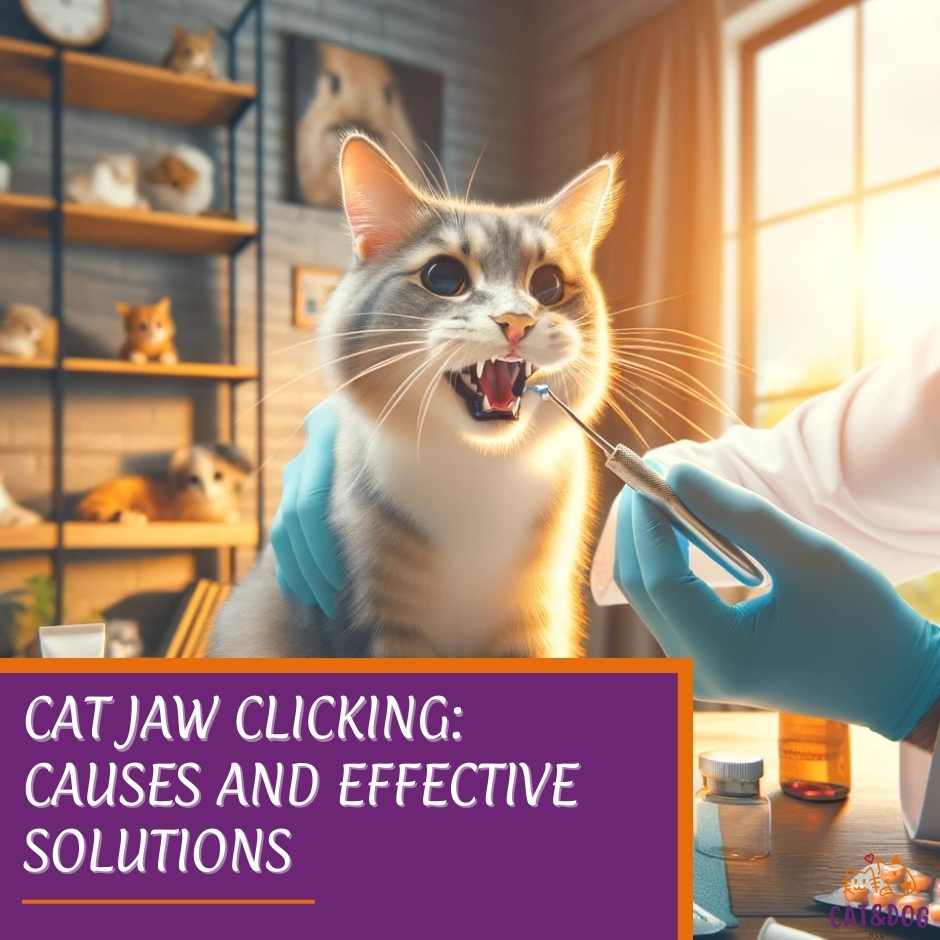A cat jaw clicking can be caused by various factors, including dental issues, jaw misalignment, or temporomandibular joint (TMJ) disorder. (1)
It’s important to consult a veterinarian to determine the underlying cause and appropriate treatment options for your cat’s jaw clicking.
Noticing your furry friend’s jaw click can be quite unsettling, right? You might wonder if it’s a quirky habit or a sign that something’s not quite right. When a cat’s jaw starts clicking, it can catch any cat parent’s attention.
The sound can come from anywhere: during a yawn, while munching on kibble, or out of nowhere. It’s important to understand that jaw-clicking in cats isn’t just a peculiar sound.
They could be trying to tell us something’s up with their health, such as a fracture or dislocation in the jaw, and avoiding certain foods could be a sign of dental problems.
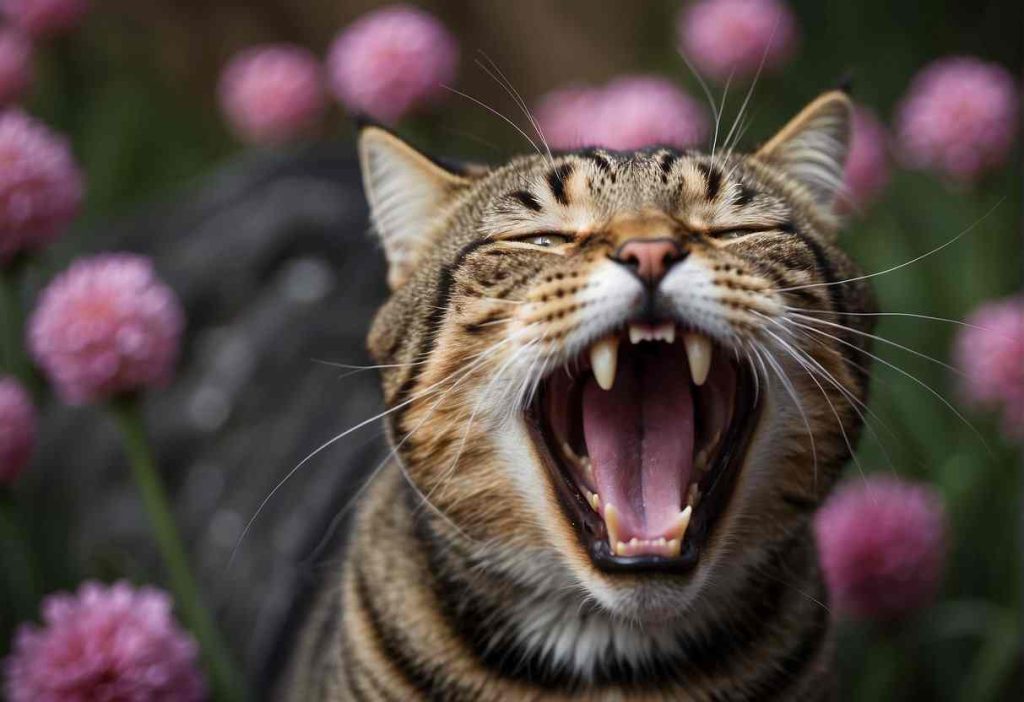
The good news is that you’re not in this alone. There are reasons behind that mysterious click, and this article’s got your back on pinpointing them.
From dental dilemmas like tooth resorption to rarer jaw problems. We’ll walk through what might cause your cat’s jaw to click, including issues with bite and jaw alignment.
How vets diagnose these issues, and the treatment plans they might recommend, including imaging techniques such as x-rays or CT scans.
And, of course, prevention is better than cure—at least that’s what they say—so we’ll touch on how you can help keep your kitty’s jaw as healthy as can be.
Taking action early on is key, and remember, this advice comes vet-approved!
Key Takeaways
- A clicking jaw in cats can indicate health issues, and understanding the causes is essential.
- Veterinary consultation is crucial for diagnosis and to explore treatment options for jaw clicking.
- Preventive care can help manage and possibly reduce the risk of jaw issues in cats.
Understanding Cat Jaw Clicking
What is jaw-clicking? It’s that peculiar noise you might hear when your cat’s mouth opens or closes. No need to panic though; it’s quite a common occurrence in our feline pals.
Symptoms to look out for:
- A noticeable click or pop when your cat is eating
- Any change in chewing habits
- Reluctance to eat (which we know is not typical cat behavior!)
These little signs are your clues. If Spot or Whiskers is suddenly shy about chowing down, it’s worth considering a peek into their mouth.
Why does early detection matter? Honestly, you don’t want a tiny tick turning into a big deal. The risks range from discomfort to dental dilemmas. Early detection can help prevent:
- Dental issues (like toothaches ruining snack time)
- Joint conditions (that could lead to Fluffy giving you the cold shoulder)
Oral infections in felines, including periodontal disease and stomatitis, can also contribute to jaw clicking, highlighting the importance of regular dental check-ups to identify and treat these conditions early.
Remember, spotting changes early often leads to simpler solutions. Have you ever tried convincing a cat to do something they don’t want to? Exactly.
In summary, catch the click before it becomes a thorn in your paw—or, more accurately, your cat’s paw. Keep your eyes peeled and ears tuned to your cat’s munching melodies.
It might just save you both from a headache (or should we say toothache?) in the long run. And if the clicking persists, a trip to the vet could be the purr-fect plan.
Causes of Cat Jaw Clicking
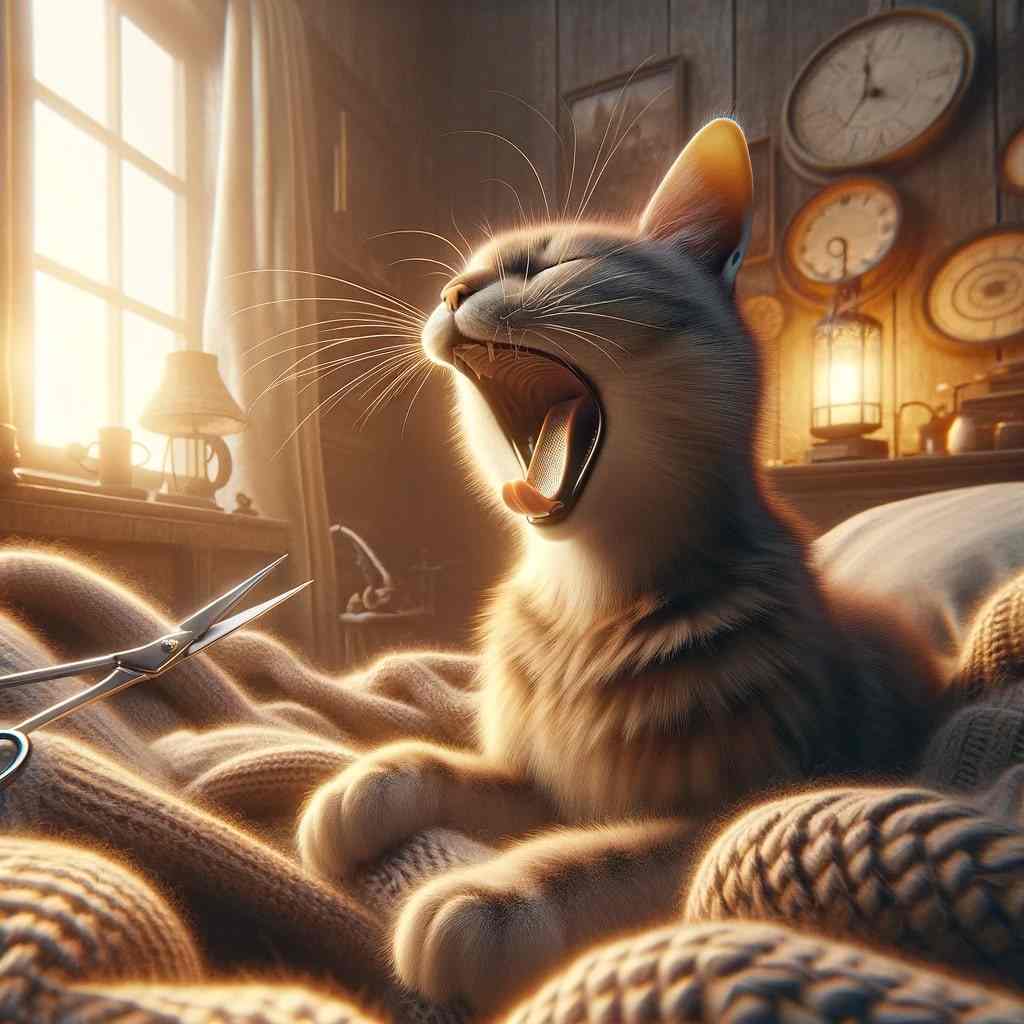
Dental diseases are often the culprits when it comes to this issue. Imagine how you’d feel with a toothache – not fun, right? Well, cats can have it tough too.
Problems such as periodontal disease, which is inflammation or infection of the tissues surrounding the teeth, affect a significant number of cats.
Did you know that by the age of three, about 70% of cats show signs of periodontal disease? That’s a pretty high number, signifying the need for regular dental check-ups with a veterinarian.
Other symptoms of dental issues in cats may include drooling, bad breath, and difficulty eating.
Regular dental care and oral hygiene, such as brushing your cat’s teeth at home and providing specialized dental treats, can help prevent and treat jaw clicking in cats.
Aside from these common dental woes, other, less common causes could lead to jaw clicking. Here’s a quick rundown:
- Trauma: Just like athletes, cats can sustain injuries that may lead to jaw problems. (2)
- Congenital issues: Some kitties are born with conditions that might affect the structure or function of their jaw. (3)
- Temporomandibular Joint (TMJ) Disorders: Have you ever had a stiff jaw? Cats have a TMJ too, and if it’s not working right, it can lead to clicking sounds.
Early detection of cat health issues is crucial, and noticing symptoms like jaw clicking can be a key step in preventing more serious conditions from developing.
The key takeaway here is that if you hear a clicking noise, it’s wise to get your fluffy companion checked out by the vet.
They’re the best at diagnosing these mysterious sounds and finding a solution to keep your cat feeling purr-fect!
Remember, those pearly whites and their supporting structures need attention to keep those quirky cat yawns silent and smooth.
If your cat is experiencing jaw clicking, it may be a sign of a respiratory infection, especially if they are a young kitten. Be sure to have them checked by a vet to ensure their health and well-being.
Diagnosis and Veterinary Consultation
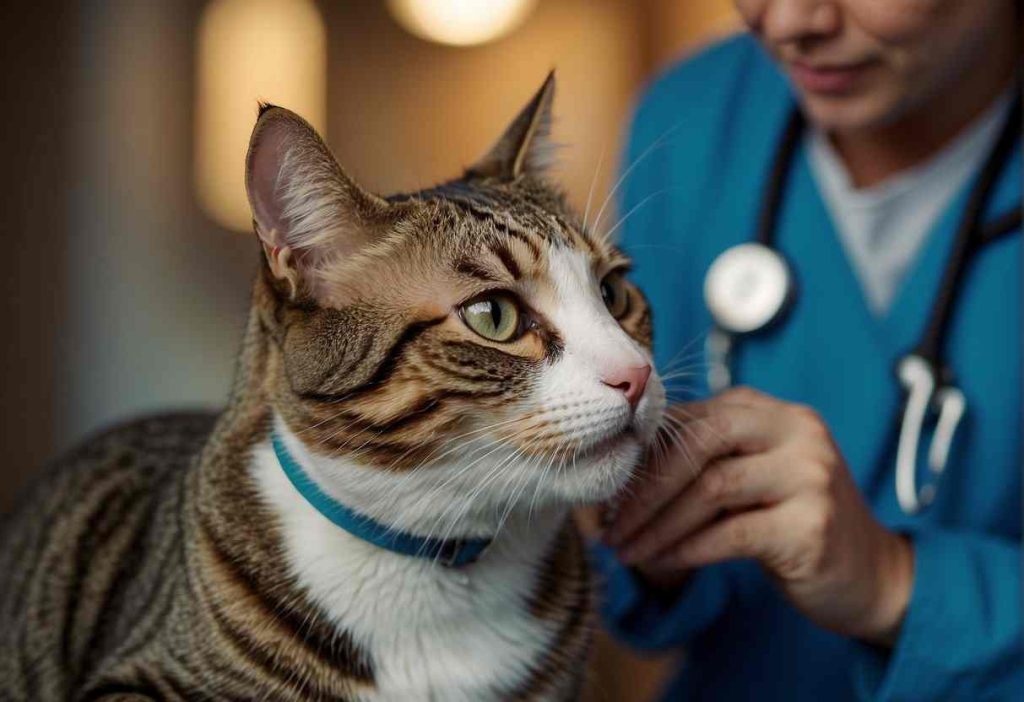
Let’s unpack what this could mean and how a vet can help put the puzzle pieces together!
What to Expect at the Vet:
- Physical Exam: Your vet’s experienced hands will gently explore your cat’s mouth, assessing for any pain or abnormalities.
- X-rays and Imaging: Tools like X-rays give a clear picture of what’s going on beyond what the eye can see—quite a sneak peek into your cat’s dental health!
How to Prep for Your Visit: Grab any detailed notes of symptoms and changes—you’re the detective here, and every clue helps. Also, flip through your cat’s medical history; those past details matter!
Questions To Ask Your Vet:
- Could diet be a factor?
- What treatment options do we have?
- Any recommended home care tips?
Now, let me tell you a quick tale about Sam, a tabby cat who loved to snack but started clicking more than keyboard keys.
After a trip to the vet, it turns out Sam had a dental issue—a tooth resorption sneaking under the radar. A few imaging tests later, treatment was underway, and Sam was back to silent munching.
Remember, your vet’s just a call away for all your cat conundrums. Keep those purrs free of clicks with a timely check-up. It’s the best move for keeping that charming kitty smile healthy!
Treatment Options and Management
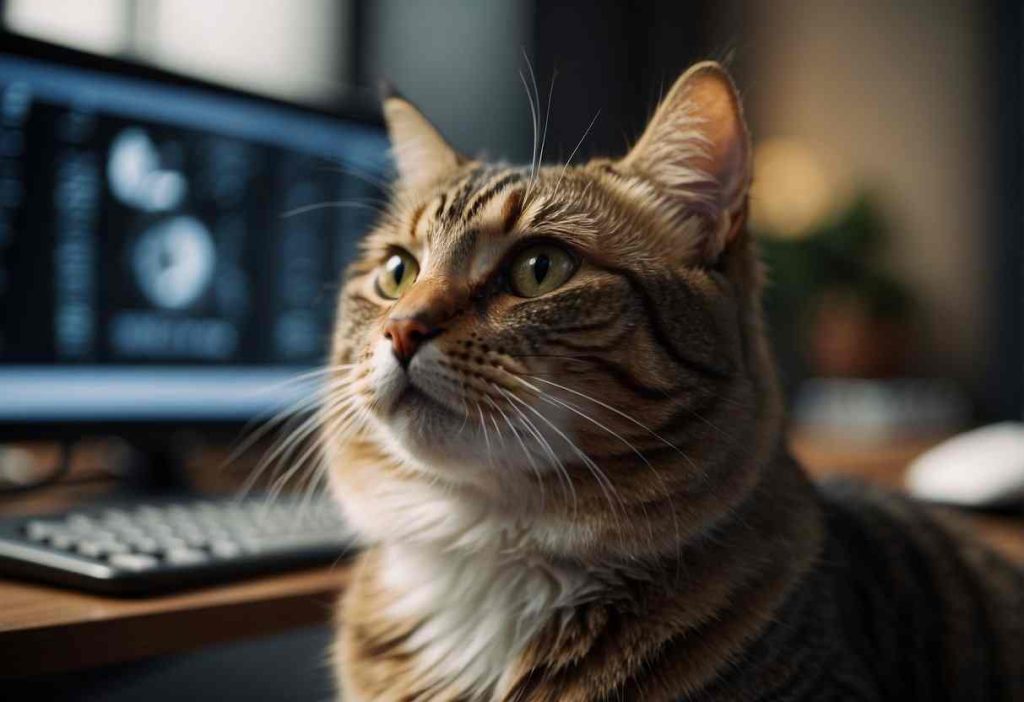
There are several paths to soothe their little jaw and get them back to their purring, content selves. Let’s unpack the treasure box of treatments together, shall we?
Medications and Dental Surgery
- Anti-inflammatories: Is your cat’s condition due to inflammation? Your vet may prescribe anti-inflammatory medications to alleviate discomfort. (4)
- Antibiotics: If an infection is at play, antibiotics will be your cat’s sidekick in fighting those nasty bugs. (5)
- Dental surgery: When tooth resorption or dental issues cause trouble, dental surgery might be the hero of the day. (6)
Physical Therapy
- Gentle Massages: Like a spa day, sometimes a gentle jaw massage can help. Your vet can show you the ropes. (7)
Home Care Strategies
- Dietary Changes: Soft foods can be easier on your cat’s jaw, kind of like choosing a comfy couch over a hard chair. (8)
- Oral Hygiene: Regular brushing can keep pesky dental issues at bay—think of it as your cat’s daily armor against tooth villains. (9)
A Pawsome Example Imagine a cat named Whiskers with a clickety jaw. A trip to the vet, some x-rays, and voilà—dental issues spotted.
A combo meal of dental surgery to fix a troubled tooth, followed by a cozy recovery diet of soft food, plus a sprinkle of anti-inflammatories. A couple of weeks later, Whiskers is back, jaw-click-free, and loving life!
Remember, each kitty is unique, just like the swirls on their fur, so their treatment plan will be tailored just for them. If you’re facing this clickety-clack mystery, a chat with your vet is the purr-fect starting step.
They’ll map out the best route for a happy jaw—no more clicking beats to dance to, just the sound of serene purring.
Preventive Measures and Long-term Care
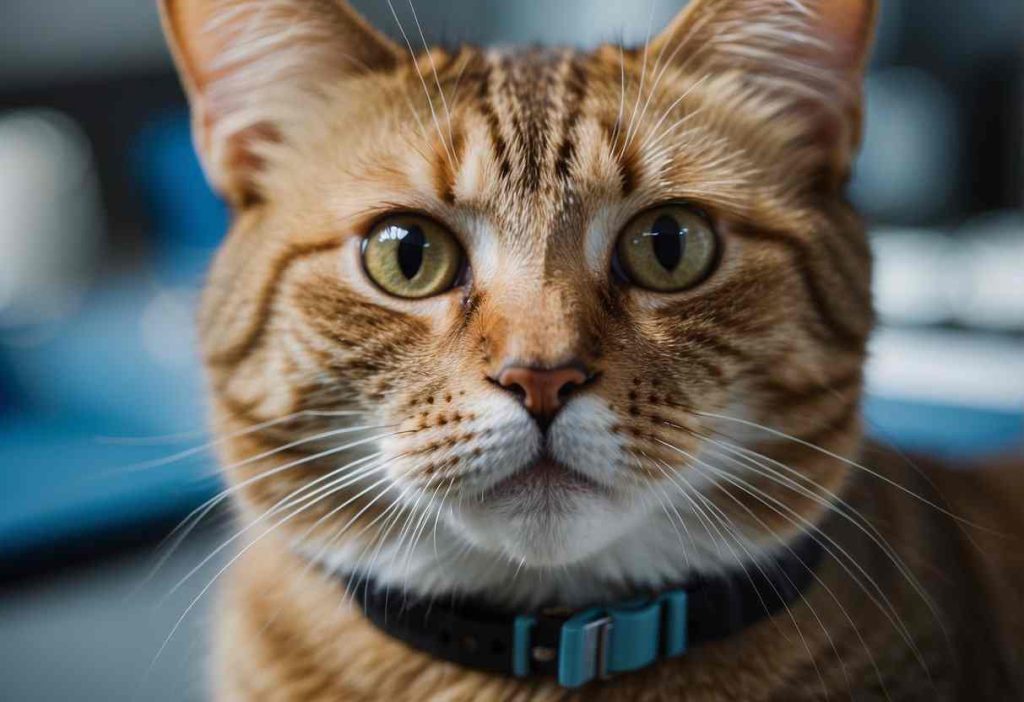
Let’s dive into some preventive strategies to ensure your cat’s jaw stays in tip-top condition:
- Regular Dental Check-ups:
- Just like us, cats need their teeth checked! Aim to schedule a dental exam at least once a year. If your kitty is getting on in years or has had dental issues before, consider more frequent visits.
- Appropriate Diet:
- What they eat matters! A balanced diet that’s kind to their teeth can make all the difference. Sometimes, specific dental treats or foods designed for oral health can help maintain those pearly whites.
When it comes to long-term management for cats with chronic jaw conditions, consistent care is key. If your cat has been diagnosed with a condition like TMJ (temporomandibular joint disorder).
Including the type of TMJ disorder, talk to your vet about a tailored care plan based on your cat’s specific needs. This might include medication, special diets, or even dental surgery in some cases.
In some cases, a biopsy may also be necessary to confirm a diagnosis and determine the best course of treatment for your cat’s jaw condition.
Also, let’s share a quick story. Emily, a fellow cat owner, navigates her senior cat’s chronic dental condition with a blend of regular vet visits, a soft food diet, and lots of love.
It’s a commitment, but seeing her feline friend comfortable and click-free makes it all worth it.
Remember, you’re not alone in this. Your vet is your partner in crime (the good kind!) to keep your cat’s jaws healthy.
A mix of watchful eyes, proper care, and a dose of understanding can ensure your furry buddy isn’t just meowing but is meowing healthily.
Need more tips or have concerns? Your vet is always the go-to person for advice tailored to your unique whiskered friend. After all, each cat is one-of-a-kind, and their care should be too!
Real-life Cases and Owner Experiences
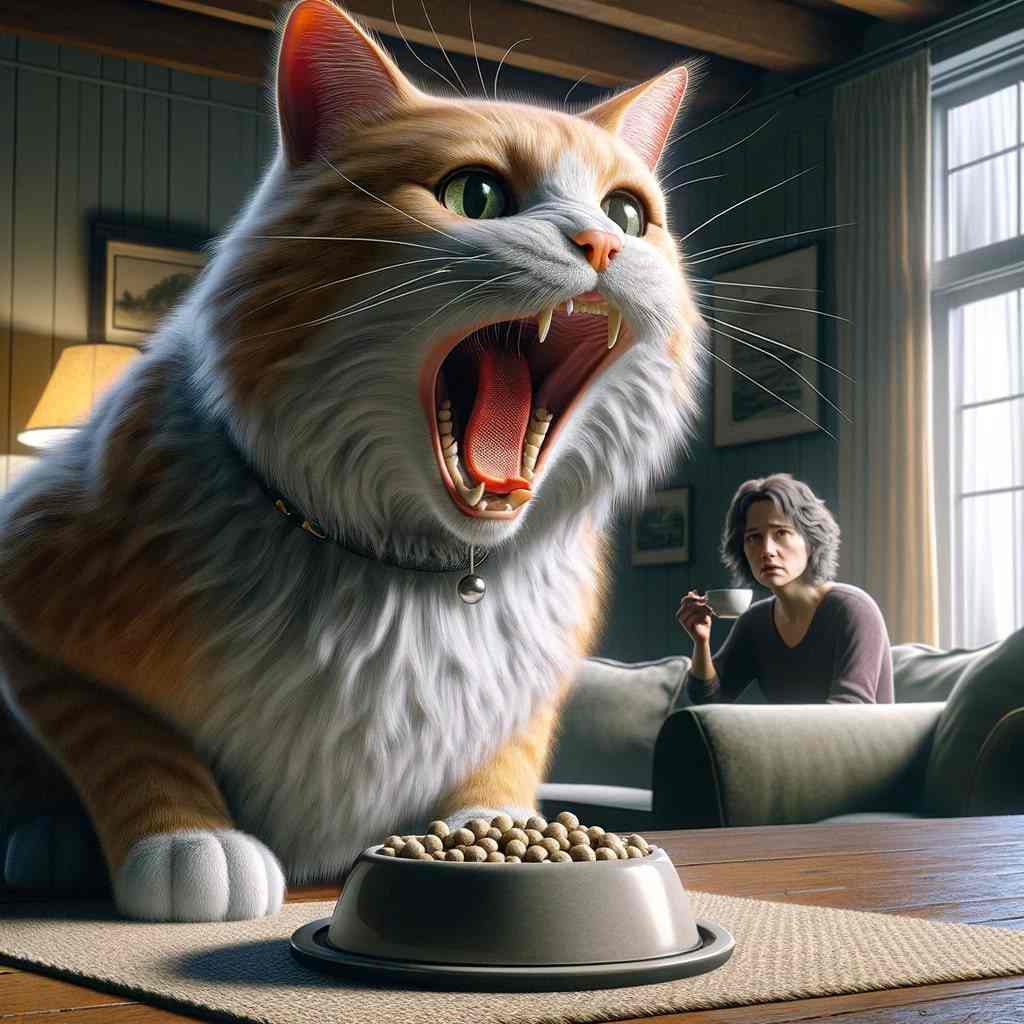
Case #1: The Midnight Snacker
Problem: Jaw clicking while eating.
Treatment: Dental check-up revealed tooth resorption. The vet recommended dental surgery.
Owner’s Tip: “Chew toys helped my kitty’s jaw muscles stay strong post-surgery!”
Case #2: The Sleepy Head
Problem: Excessive yawning and clicking.
Treatment: Oxygen levels were fine—turned out to be dental pain.
Owner’s Take: “Who knew a cat could have a toothache? Dental hygiene is a must!”
| Case # | Symptoms | Owner’s Insight | Outcome |
| 3 | Tartar buildup | “Regular vet visits save a lot of trouble!” | Dental clean |
| 4 | Clicks and sores | “I keep an eye on my cat’s gum health now.” | Medication |
Did you know daily dental care can keep such issues at bay? A quick brush can avoid a vet rush!
Ever heard a fellow owner quip, “My cat’s jaw pops more than my popcorn”? While it’s no laughing matter, pain isn’t always the cause.
Boredom or restlessness can trigger yawning and clicking too—who would’ve thought?
Tips from the Trenches of Cat Care:
- Watch for signs of discomfort.
- Visit the vet regularly.
- Brush those pearly whites daily.
- Play to reduce stress and boredom.
Remember, your feline friend’s jaw should do the talking, not the clicking. So, keep those vet appointments and listen to those whisker-twitching tales of experience!
Quick Recap
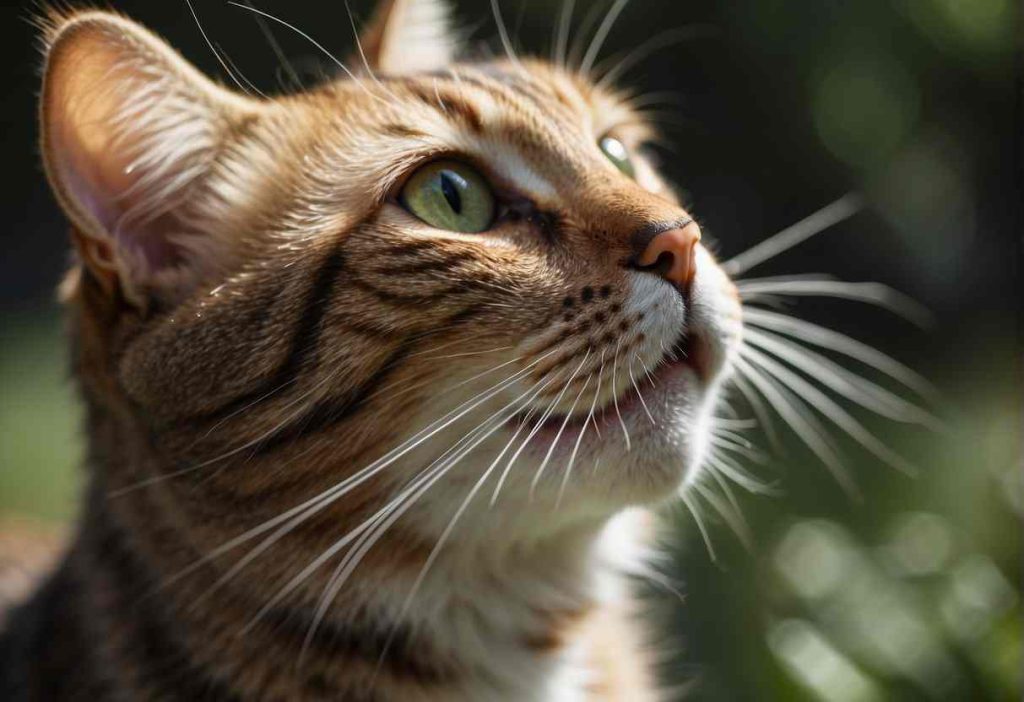
Your cat’s teeth are essential, and any erosion underneath that shiny enamel can lead to discomfort and that telltale clicking noise.
In some cases, tooth extraction may be necessary to alleviate the pain and prevent further damage.
Your vet will also perform a physical examination of your cat’s mouth, teeth, and jaw to determine the cause of the clicking sounds and may recommend tooth extraction if necessary.
Now, could it be dental issues striking a chord in your kitty’s mouth? Absolutely.
Those chompers need to be in tip-top shape. So, if your feline friend starts producing a clicking symphony, it’s time to pay closer attention.
Remember the chatter about jaw-clicking symptoms and solutions? Maybe you wonder, “How do I even spot this in my cat?”
It could be as simple as observing their behavior – like a sudden interest in excessively yawning or changes in the way they chew their favorite treats.
And what about Treating TMJ (temporomandibular joint disorders) in cats?
Well, if your cat could talk, they’d probably thank you for keeping their jaw joints healthy by seeking prompt veterinary advice when things seem off.
To keep this from happening in your furry companion:
- Schedule regular veterinary check-ups.
- Monitor their eating and behavior for changes.
- Provide dental-friendly treats and toys.
You’re not just their human; you’re their hero. Don’t let a little jaw-clicking create a crescendo of issues. A stitch in time saves nine, and the same goes for your cat’s jaw health.
Keep an eye out, and you’ll be purr-fectly on track!
Frequently Asked Questions
When your cat’s jaw clicks, you might be puzzled and concerned. Below, we’ve gathered common questions that cat owners like you often ask, giving you the quick, informative answers you’re looking for.
Is a cat’s jaw clicking a sign of pain or discomfort?
Yes, jaw clicking can be an indicator of discomfort or pain in your cat. It often stems from issues with dental health or other underlying conditions.
Can dental issues in cats lead to jaw clicking?
Dental issues, such as tooth resorption or gum disease, are indeed common culprits behind jaw clicking in cats.
How can I prevent jaw clicking in my cat?
Prevention often involves regular dental care, including professional cleanings and daily tooth brushing at home.
Can jaw clicking go away on its own, or does it always need treatment?
Jaw clicking usually requires treatment. Without addressing the underlying cause, it’s unlikely to resolve independently.
Are there home remedies for a cat’s jaw clicking?
No home remedies can effectively treat the underlying causes of jaw clicking. It’s best to consult your vet for proper diagnosis and treatment.
Are certain cat breeds more prone to jaw-clicking?
There’s no specific breed known to be more prone to jaw-clicking. It can occur in any cat, depending on their dental health and other conditions.
Should I change my cat’s food if it has jaw-clicking?
Changing your cat’s food isn’t a direct solution for jaw clicking, but a vet might recommend a dental-friendly diet to support overall dental health.

